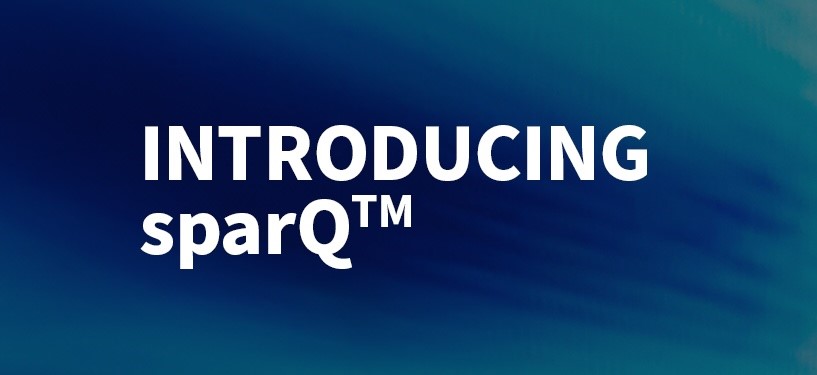We sat down with Joe Maki, lead front-end developer at local fintech company, Bison, to discuss why he recruits developers from Resilient Coders. Joe is responsible for the UI/UX decisions and the design of the Bison platform. Jose Pimentel, a Resilient Coders graduate and Bison developer, joined the conversation and shared his perspective on his experience with both organizations.
About Bison
Joe: We’re a fintech growth company in the private equity markets. We have two products that are tools that help these financial firms analyze track, draw meaning, and create reports from all of their unstructured cash flow data.
We’re a growth company, and the Software Development team tends to work in focused groups, so we tend to forge close relationships. Our headquarters are located in Boston, and we have offices in Philadelphia and in Gothenburg, Sweden.
Why Bison recruits from Resilient Coders
 Joe: We’re looking at “How do we get some local talent?” We had a pipeline with a university and have developed a very good internship program that we wanted to build upon.
Joe: We’re looking at “How do we get some local talent?” We had a pipeline with a university and have developed a very good internship program that we wanted to build upon.
Resilient Coders aligns with my belief system and things that we care about. I began volunteering there twice a week, initially with the intention of finding somebody to recruit. And from the first class, we got Jose. And then I decided to stick around because I really liked it. And I’ve been going since then.
Skill level of Resilient Coders graduates
Joe: As with any graduating class, it’s going to vary, but there is exceptional talent coming out of Resilient. There are definitely work-ready developers coming out of the boot camp. If you can identify them, then you’re golden. There’s no reason not to hire somebody from this over anywhere else. They’re great.
We just hired another one literally this morning, so I think that we’re all on board with this whole thing. You know, we’ve had great success with Jose. He came up to speed incredibly quickly and it’s just been great
And I think getting a chance to work with these people ahead of time before you move into any employment decisions and you get to know them, get to see them work, figure out what their actual interests are, and what career they might be looking to pursue, you can find a better personality fit. You can find somebody that would work well with your team, you know what their skills are coming in so you can give them work that they’re ready for right out of the gate.
Success with Resilient Coders hires
Joe: We always try to get our new hires promoting code to production as soon as possible. The Resilient hire that we’ve had so far, Jose, ended up promoting code to production within his first week and basically continued doing that afterwards, so generally a great success.
We have a very large code base. It’s five or six years old at this point, so it’s pretty expansive. Usually when we bring people on, what we generally try to do is get a feel for what the person is drawn to. There are front end challenges, there are back end challenges. They may have some experience with different languages and they may want to explore certain things, and we’re usually pretty open to that.
Jose has been great. I think that he definitely has a knack for looking at other people’s code and understanding what it’s doing without having to have somebody else walk him through it. And that’s obviously extremely helpful because we don’t always have time to walk everybody through every line of code. There’s only so much time in the day. And so for somebody to have the ability to go through five different files, follow where the program flow is going, get an understanding, and then be able to complete a task after that without having to disturb anybody and just know that it will be done, that’s great. That’s all you can really ask for.
have time to walk everybody through every line of code. There’s only so much time in the day. And so for somebody to have the ability to go through five different files, follow where the program flow is going, get an understanding, and then be able to complete a task after that without having to disturb anybody and just know that it will be done, that’s great. That’s all you can really ask for.
Jose: There’s a right company for everyone that graduates from Resilient Coders. It’s just a matter of finding the right person for the right company.
Resilient Coders as a talent pipeline
Joe: Resilient is definitely the thing that you could most call a pipeline that we have. We use standard recruiting stuff, as well, but I think that this has definitely been more effective. As I’ve stayed engaged over time, the program has improved a lot. They expanded it from an 8-week to a 14-week program, so it’s a little bit more intensive.
I think that this graduating class is particularly strong. And it just gives them a little bit more time to work on real or more complicated projects that get to a more intermediate level of programming skill required to complete them. And I think that that has been really helpful.
It also makes it easier as a hiring manager to determine what the spread in the class is. It definitely makes it easier on my side to identify them because they’ve had an extra four weeks to build an even cooler final project or work on stuff on the side
You definitely get a lot of face time with potential hires, which is great. And that requires that you give some of your time as well, but people should be doing that anyway, and there’s a huge dividend to doing it, anyway
Resilient Coders grads vs. college grads
Joe: The person with a four-year degree is going to have more academic and theoretical computer science concepts at their fingertips. I think that Resilient focuses a lot more on just practical coding.
There are exceptional people coming out of both of these systems. If you have the infrastructure within your company to support it, you shouldn’t have any problem integrating a Resilient developer into your team.
Jose: You can’t compare Resilient Coders and a four-year college. For Resilient Coders grads, it’s usually not their first job. Their objective is to get out of Resilient and do amazing things.



